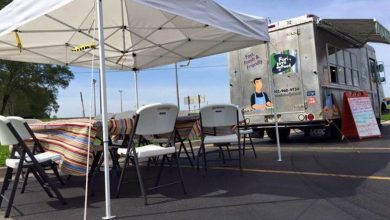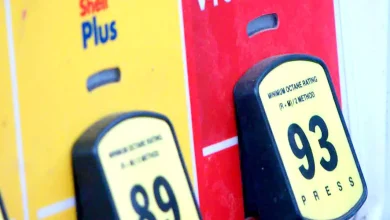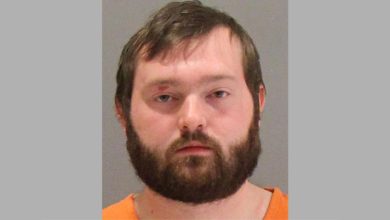Number of Omaha area crimes solved thanks to the license-plate reading cameras, this is how the system works
OMAHA, Nebraska – A little more than two weeks following the installation of brand new license plate reading cameras in Douglas County, the sheriff’s office reports that the cameras are already proving to be an effective tool in their arsenal against criminal activity.
According to Chief Deputy Wayne Hudson of the Douglas County Sheriff’s Office, “If you drive through the camera, it will take a snapshot of your license plate, then it will send that to a database for stolen vehicles, or any kind of vehicle that we enter into the system that we may be looking for.” “If you drive through the camera, it will take a snapshot of your license plate,” Chief Deputy Hudson says. “If you drive through the camera, it will send that to a database for stolen vehicles.”
The pilot project lasts for one year and consists of installing 25 of the cameras around the unincorporated parts of Douglas County.
“Once that signal comes back, let’s say [the car] is stolen, it will send a signal to the patrol deputies and let them know that this vehicle came by this camera at a specific time,” the speaker says. “[The] signal will let them know that this vehicle came through this camera at a given time.”
The goal of the project is to assist the Douglas County Sheriff’s Office in solving more crimes. Chief Deputy Hudson has reported that the trial program is successful after only two weeks of implementation.
The office has already been successful in solving four cases involving stolen vehicles.
“And in one vehicle a firearm was recovered, and in that case two people were arrested,” says Hudson. “And another vehicle was a stolen vehicle, and two people were arrested in that case.” “And a third vehicle was a stolen vehicle, and one person was arrested,” says Hudson. “And the fourth vehicle was a stolen vehicle, and that person wasn’t arrested but they were identified.”
“Well, some people could say, ‘it’s simply a stolen vehicle,'” the police officer said. To some, it can seem like nothing more than a vehicle that was taken without permission, but to others who don’t have a spare car and need to use the one that was taken to get to work, it’s a matter of life and death.
In August, the Omaha Sheriff’s Office submitted a request to the Omaha City Council requesting permission to post ten of the twenty-five cameras just inside the city borders, in areas of the city that were still under their authority.
However, there were some reservations about the request.
Councilmember Don Rowe stated, “I’m sure there’s a lot of mistrust in the public as to what this is going to lead to.” “I’m sure there’s a lot of mistrust in the public as to what this is going to lead to.”
Councilmember Aimee Melton went on to say, “I want to provide law enforcement with all the tools that you need, all the training that you need, but this may be going a little bit too far for me.”
In August, the ACLU of Nebraska sent a letter of testimony to the City Council of Omaha expressing their opposition to the matter.
The following statement may be found in the letter: “This arrangement would permit the large-scale police and government surveillance of all individuals in Omaha who travel along the license plate reader systems.” A large number of cameras are able to take pictures of pedestrians and other non-motorists who happen to be in the vicinity of the camera. Along with the expansion of the government’s use of license plate reader systems and other similar technology, this represents a continuation of a trend toward the application of high-tech solutions to routine policing, which raises significant privacy concerns for individuals who are not suspected of any wrongdoing in Omaha.
The request was eventually rescinded by county officials, who instead decided to deploy the remaining 10 cameras in different parts of the county.
According to Chief Deputy Hudson, the cameras do not provide any safety or security concerns. According to him, they do not keep track of your vehicle, and after a month all of the information stored in the camera system is wiped clean.
“We would need to enter a stolen vehicle as well as a wanted vehicle in the database,” continues Hudson. “If nothing is in there, then nothing comes back.”
According to Hudson, the Sheriff’s Office has high hopes that the technology might eventually be placed in all of the cars used by the sheriff’s office if the pilot program is successful.
The Sarpy County – Latest News:
Omaha Local News || Nebraska State News || Crime and Safety News || National news || Tech News || Lifestyle News





